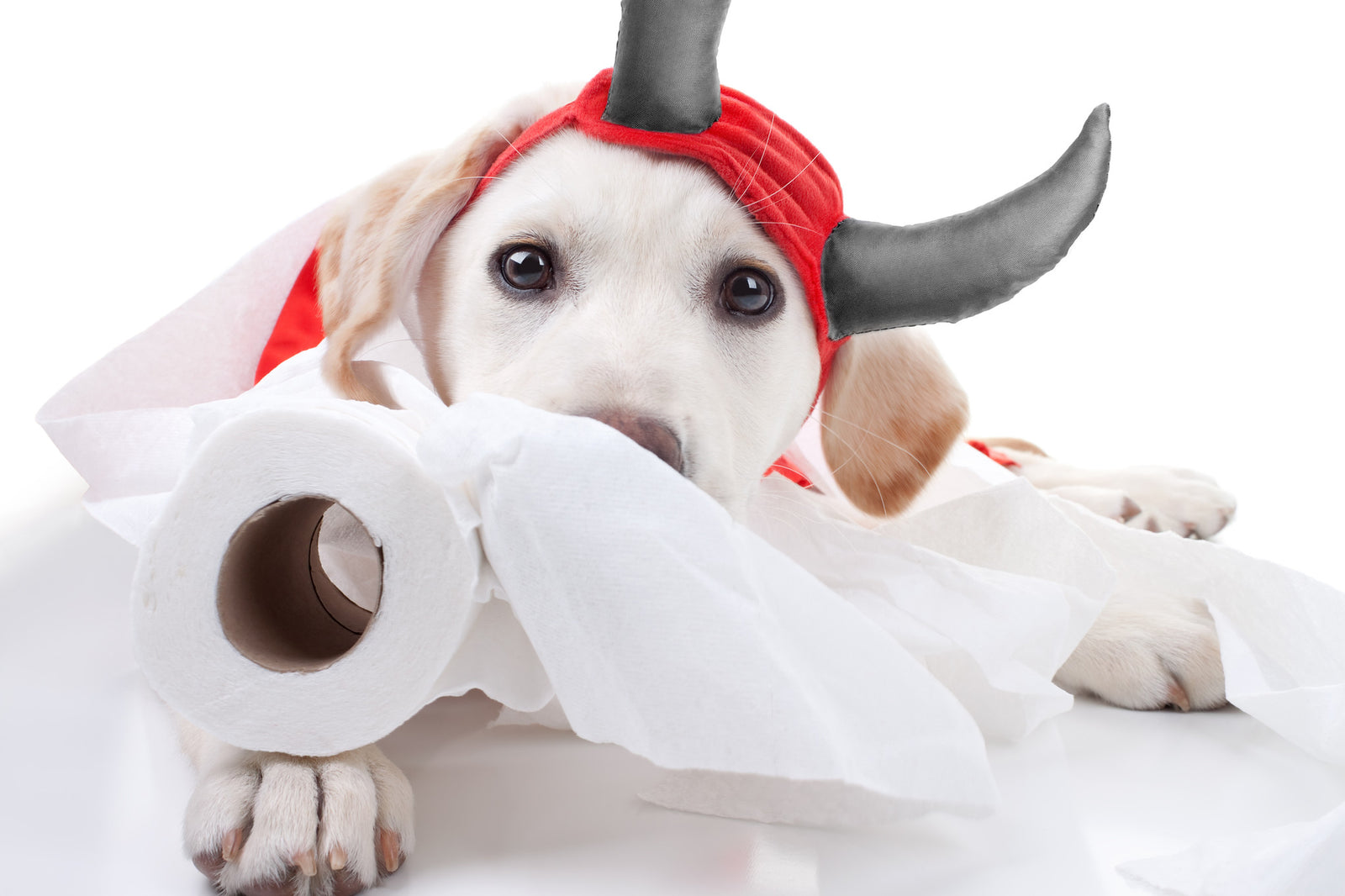5 Easy Ways To Stops Your Dog's Inappropriate Chewing

It’s typical for puppies to chew on objects around the house. It’s similar to an infant wanting to shove everything into its mouth. They are just learning about their surroundings and environment and it’s up to you to step in and show them what is appropriate and what’s not. Chewing plays an important role in the development of puppies. It is a way to relief pain from sore gums when their teeth start to come in. The older they get, the more durable chew toys should become, as older dogs use chewing to keep a strong jaw and healthy clean teeth.
Getting to know your dog’s chewing habits is a great way to learn what you can do to reduce their inappropriate chewing habits. One crucial observation would be to look to see WHEN they are chew. What caused or triggered the chewing behavior? We are going to explore 5 beneficial tips to eliminate inappropriate chewing, by identifying the style of chewing behaviors and its triggers.
Tip 1: Figuring Out the Root of the Problem
Dogs have a way of letting you know what they need without ever saying a word. It’s these subtle cues pet owners should keep an eye out for. Most cases of inappropriate chewing fall into three categories, separation anxiety, fabric sucking, and lastly hunger. Most of you are probably like, “How are these considered categories of inappropriate chewing?” It’s dog psychology and being able to identify these behaviors can save you money on replacing your precious items.
Tip 2: Home Alone Can Make Items Disappear
Some puppies and older dogs chew on personal belongs when you are nowhere to be found. This is known as separation anxiety and is generally intensified when owners are away. Other notable signs of separation anxiety could be barking, defecation, pacing, restlessness, urination, and whining. There are a number of things that can result in separation anxiety such as, moving to a new area, change in work schedule or daily routine, undergoing new ownership just to name a few.
Fortunately, there are ways to combat this and help your furry friend get over the fact of you needing to go to work or to the grocery store. Depending on its level of anxiety, dogs with mild separation anxiety are easily tamed with the dangle of a tasty treat upon departure. Dogs who experience moderate to severe separation anxiety are easily spotted. These are the ones that notice subtle cues such as putting on shoes or grabbing keys—and that’s all it takes for them to start showing out. This anxiety can result in coming home to a destroyed home and instill the fear that you can never leave Fido alone again.
One of the only ways to counter this form of separation anxiety is to take very short trips to let your dog know that you will always return. Gradually you will start to lengthen the duration of the separation and the dogs will become more calm, ultimately reducing destruction and other behaviors that were involved with his anxiety.
Tip 3: Pups that Chew
This is generally the most common stage where inappropriate chewing occurs. As mentioned before, puppies are still learning about their environment and when their little teeth start budding, they will chew on anything in an effort to seek pain relief. Give them choices in chew toys and do not let them get away chewing on items that are not intended for them. When providing your puppy with choices, let them get acquainted with the different textures like plush toys, rubber bones, and rawhides. Each serves a distinctive purpose and will benefit the puppy greatly while reducing the amount of damage they are doing to your home.
Tip 4: Boredom is the Enemy
Sometimes, your furry friend will seek comfort in destructive chewing to exert unspent energy due to a lack of mental and physical stimulation. These behaviors can be easily fought with longer walks, trips to the dog park, and other interactive indoor games like tug and fetch. It is important that you keep your dog well stimulated. They love to learn new things to try to impress you the owner.
Tip 5: Stress Chewing—A Thing of the Past
Stress chewing is a result of your dog feeling confined and inhibited by the environment around them. These actions can be caused by the sight of actions or objects that they want to interact with, but can’t get to like a fenced dog wanting to play with the cat on the other side. They may gnaw or chew at the fencing in an attempt to show their frustration and stress. One of the best ways to treat this form of anxiety and stress is to have a special toy that the dog only gets during times of frustration and stress. This will curb their urge to inappropriately chew.
Understanding your Pet and their Chewing Needs
We have uncovered a few great ideas to curb inappropriate chewing and ways to address the situation. Whether you little fella is stress chewing, teething, suffering from boredom or separation anxiety, there are ways to encourage healthy and appropriate chewing. One thing to keep in mind is that these furry snuggle buddies rely on you to show them what’s right and wrong. Be an outstanding pet owner and acknowledge your pet when they display behavior outside the norm!





Leave a comment